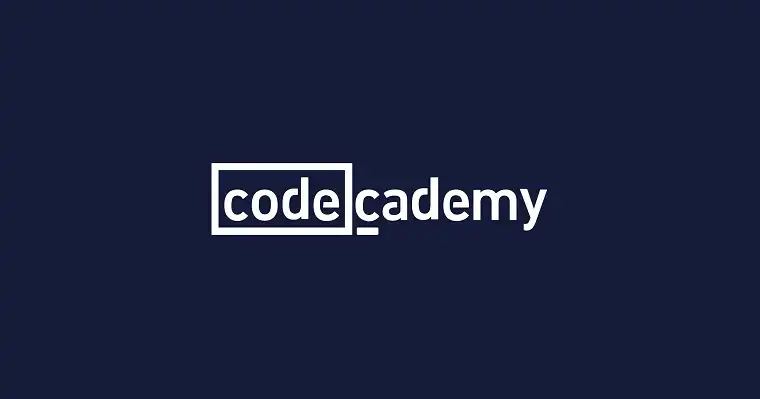Are you looking for reliable, unbiased info on DataCamp alternatives and competitors?
If you’ve looked into online course platforms that can help you master your tech skills, chances are you’ve heard about DataCamp. It’s a fantastic website that offers a comprehensive range of data science and programming courses.
However, just like any learning platform, DataCamp might not be the perfect match for everyone.
Whether you’re seeking a different teaching style, something more affordable, a specialized focus, or just exploring fresh learning experiences, we’ve put together a comprehensive guide to the best DataCamp alternatives to help you unleash your true potential.
From hands-on coding adventures to interactive project-based learning, we’ll guide you through an array of exceptional platforms that will elevate your tech skills and fuel your passion for knowledge.
No matter your aspirations, there’s an ideal alternative to DataCamp waiting for you.
Let’s dive in and discover the perfect fit that’ll take your tech expertise to new heights!
Disclosure: Some of the links in this article are affiliate links, meaning at no additional cost for you, we might get a commission if you click the link and purchase.
What are the Best DataCamp Alternatives?
1. Codecademy
 Codecademy
Codecademy
Codecademy is a great resource for people looking to learn coding. With its interactive and engaging platform, it's easy to get started and make progress quickly, building skills in HTML & CSS, JavaScript, Python, databases, and more.
Codecademy is the go-to online course platform for anyone looking to learn how to code or build other in-demand tech skills.
Their biggest strength is the number of programming languages they offer: you can pick from 12 different programming languages, such as Python, Java, or, C++.
They also offer courses in emerging career fields, such as iOS Developer, Front-End Engineer, or Full-Stack Engineer.
If you are unsure where to start, Codecademy offers a quiz to help you find your potential field of study. This way you can try and see which path may be the best fit for your skills, interest level, and potential earnings.
You can try their courses out for free, and once you are ready to start, the price differs for individuals, students, or businesses.
For individuals, Codecademy pricing includes 3 different plans: the Basic level is free, the Pro Lite level is $17.49/month, when billed annually, or $34.99/billed monthly), or the Pro level at $29.99/monthly, when billed annually (or $59.99/billed monthly). The Pro level is the most cost-effective way for anyone looking to complete an entire career program with Codecademy.
Check out our Codecademy review to learn more or click here to try it for free today.
2. Skillshare
Skillshare comes in at #2 because it offers a huge amount of choices to its students. You can pick from over 34,000 courses and over 11,000 instructors; this attracts thousands of students daily. As the old adage goes: “success begets success.” Good course content and selection lead to passionate instructors teaching courses, which, in turn, leads to students wanting to learn from those instructors.
Because of the sheer amount of talent on Skillshare, top instructors naturally bubble to the top. In addition, you can sample courses and see if you like a specific instructor and tier learning style. Each instructor also receives student feedback and ranking, so that you can see how well their course content presentation is received by others.
When it comes to programming and computer science, Skillshare has a wide selection of courses for beginners and pros alike.
Skillshare offers you to try out your first month for free. After that, you can continue to access their entire course library with a paid annual membership (see our Skillshare pricing guide for info).
Check out our Skillshare review for more info on all the platform has to offer.
Click here to try Skillshare free for 30 days.
3. Udacity
Udacity is a well-rounded online course platform popular with students of all ages and all skill levels because it is user-friendly, engaging, and intuitive. With several programs, you can land a six-figure job after successfully completing that specific track (which usually takes three months, on average).
Udacity is an investment in your future. With the high demand in areas like Cloud Computing and Autonomous Systems, you will receive the latest cutting-edge course content for tomorrow’s career fields. Because the programs are fast-tracked, your skills will be able to keep relevant with the fast change of pace in technology today. Udacity is used by many large organizations and corporations for their team training: US Air Force, Toyota, and Shell are some of their clients.
You can try out Udacity for free; after your trial, the monthly financial investment is usually around $399/month, especially if you are pursuing a Nanodegree.
Our full Udacity review fully covers everything you need to know about this course platform.
Click here to get started with Udacity.
4. Coursera
As a bridge between brick-and-mortar universities and their students, Coursera collaborates with many top-notch colleges to create a learning catalog that you can access anywhere in the world. You don’t need to take entrance exams, write college application essays, or have a specific GPA to enroll in a course.
Because of the zero-barrier enrollment opportunity, anyone can now try out a course and see if they enjoy learning more about cybersecurity or machine learning. You don’t have to give up your current career to pursue another one, or to chase your dreams or hobbies.
Universities like Tufts or Yale offer business analytics, Health, and IT courses, as well as AI and Machine Learning. You can work to earn your undergraduate degree, earn credits toward your Master’s with the MasterTrack Certificate, or earn specific university certificates.
When it comes to cost, you can get started for free for 7 days, then start your membership with unlimited course access at $59/month, or $399/annually, with the ability to cancel anytime.
Our Coursera Plus review has more info on the platform’s subscription offering.
Click here to try a Coursera Plus subscription free for 7 days.
5. edX
edX is a well-established and popular online learning platform that offers over 3000 courses on subjects like Google Cloud Computing (offered by GoogleCloud), or Data Visualization and Building Dashboards with Excel and Cognos (offered by IBM).
edX expands the influence of traditional schools by removing the physical walls and offering high-quality course content online. For example, if you want to become a pro at Excel, you can now work with experts in Excel to learn the intricacies of that program, at your own pace and in the comfort of your own home (or wherever you happen to be).
Over 500,000 students access edX online daily to find the course content they are looking for to help them move forward: in their business, career, school, or for self-development. edX offers boot camps, certificates, undergrad and graduate programs, and courses with an executive education focus.
Regarding pricing, edX is a bit more costly than its competitors: you can get started for free, and after that, it’s between $50-$300 per course or $395/month (if you are taking MasterTrack courses). However, this is affordable and a great investment compared to traditional education.
If you want more info on all that edX has to offer, we encourage you to read our edX review.
6. Pluralsight
Pluralsight is another well-established online learning company that offers many tech-specific courses to help you expand your existing skillset or to learn a new set of skills for high-demand technology and computer career opportunities.
This platform offers peer support and specific industry-respected certifications, such as Microsoft Azure, Core Python, or Cloud certifications. Many companies use Pluralsight to help them get their development teams certified together, as they can track individual progress, assign extra coaching, or collaborate within the platform. Pluralsight offers a mix of labs, skills assessments, hands-on activities, as well as team role assessments, and development.
To get started, try Pluralsight for free for ten days; after that, you can choose either the standard ($29/month) or the premium plan ($45/month).
Check out our Pluralsight review for more info or click here to try Pluralsight free for 10 days.
What to Look for in a DataCamp Alternative
When it comes to finding the right DataCamp competitor for your needs, there are a few things you want to consider:
- Course selection: You can pick any subject or area of interest and find a matching online course platform that offers that particular subject. All the platforms we reviewed here offer courses in programming and various computer science career pathways.
- Content presentation: Most online course platforms offer asynchronous courses that consist of video materials, as well as handouts, projects, quizzes, and other engaging content. Some classes are live and provide an opportunity for real live course interaction with the instructor and your classmates.
- Support: All platforms we reviewed here offer well-developed courses that can be completed successfully without additional support. However, for students who need peer support, mentorship, motivation, or career networking, there are choices that offer those services.
- Pricing: Almost every online course platform allows you to try out their courses for free, whether it’s a couple of courses, the first lesson, or a limited amount of days. Some platforms offer per-course pricing, others have a monthly or annual subscription. Consider your budget carefully to find the right option for your needs.
We have compiled a comprehensive guide to the best online course websites to bring you closer look at the different platforms out there today. Check it out to determine which one is right for you.
A Final Word on the Best DataCamp Competitors
Remember, while DataCamp is undoubtedly an excellent platform, the beauty of the internet lies in the abundance of options available, catering to the unique needs and preferences of every learner.
Whether you’re a data enthusiast, aspiring coder, or curious learner eager to expand your tech prowess, the DataCamp alternatives we’ve explored in this guide offer a diverse array of opportunities.
Embrace the freedom of choice, and don’t be afraid to explore different avenues. The world of tech is ever-evolving, and by experimenting with various platforms, you’ll discover the perfect match that fuels your passion for learning.
Happy learning!
Have any questions about our guide to the best alternatives to DataCamp? Let us know by commenting below.


